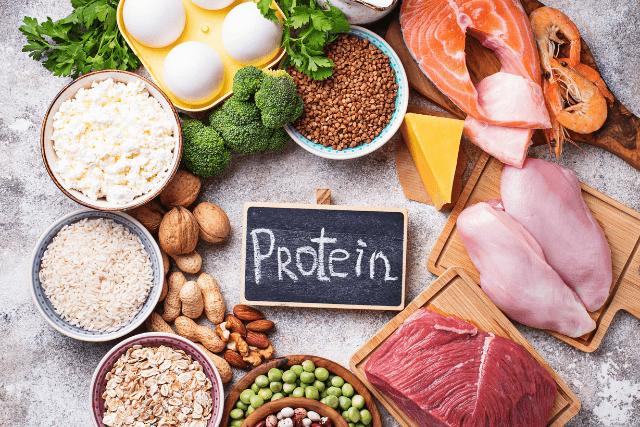Protein plays a critical role in healing and recovery, especially after surgery. Adequate protein intake is essential to support wound healing, muscle preservation, and overall recovery. Without sufficient protein, the body cannot rebuild tissue or maintain strength effectively. Therefore, understanding how much protein you need during different stages of recovery is crucial.
In this blog, we’ll explore the general protein targets post-surgery, how to adjust intake based on body weight and physical activity, and why following the Protein Guidelines for Bariatric patients is vital for a smooth recovery. By meeting your protein goals, you can ensure optimal healing and muscle retention throughout your recovery process.
General Target:
- 60–80 grams per day for most patients
- May increase to 90–100+ grams/day for high-BMI, male, or revisional patients
- Should be individualized based on body composition and physical activity
Per Body Weight:
- 1.0–1.5 grams of protein per kilogram of ideal body weight
For example, a person with an ideal body weight of 70 kg (154 lbs) should aim for 70–105 g/day. Specifically, this target helps ensure that protein intake aligns with the individual’s body composition.
Postoperative Protein Progression
| Time Post-Surgery | Target Intake | Notes |
|---|---|---|
| 0–2 weeks | 30–40 g/day | Start with protein shakes (clear/full liquid phase) |
| 2–6 weeks | 60+ g/day | As soft/puréed proteins are tolerated |
| >6 weeks | 60–80 g/day | Long-term maintenance goal |
| Active exercise | 80–100+ g/day | To support muscle recovery and lean mass preservation |
Sources of Protein
- Protein shakes (whey isolate, pea, soy)
- Lean meats: chicken, turkey, fish
- Eggs, Greek yogurt, cottage cheese
- Tofu, legumes (watch carbs)
- Medical food products or supplements as needed
Risks of Inadequate Protein
- Hair loss
- Muscle wasting
- Poor wound healing
- Fatigue and slow recovery
Conclusion:
In conclusion, maintaining an appropriate level of protein intake is essential for a successful recovery process after Bariatric surgery. As outlined in the Protein Guidelines for Bariatric patients, protein needs vary depending on factors like body weight, physical activity, and the stage of recovery. By progressively increasing protein intake as tolerated, you help your body heal, maintain muscle mass, and prevent complications such as fatigue and poor wound healing. Moreover, choosing the right sources of protein, such as protein shakes, lean meats, and plant-based options, can make meeting your goals more manageable. Therefore, it’s important to monitor your progress, adjust as needed, and consult with healthcare professionals to ensure your protein intake aligns with your individual recovery needs. Prioritizing protein equips your body to heal quickly and effectively, thus paving the way for long-term health and well-being.










